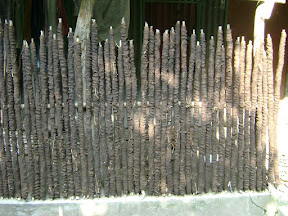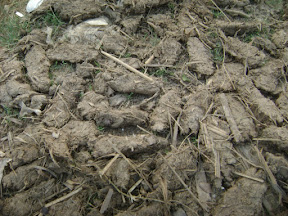

Fish is the most common thing for every Bengali to eat. The numerious fish bones generated as waste is also added to the soils. Almost in every hotel non-veg is served, and eating non-veg is very common in Bangladesh, all the bones generated as garbage also gets added to the soil. The biochar and plus (bones / pottery shards / ash / compost / etc.) are adding great value to the soils. As the rainfall is high majority of soils in Bangladesh are acidic. The ash is adding value to the soils in increasing PH towards neutral. Ash is sprinkled on many plants as insecticide / to repel.










































